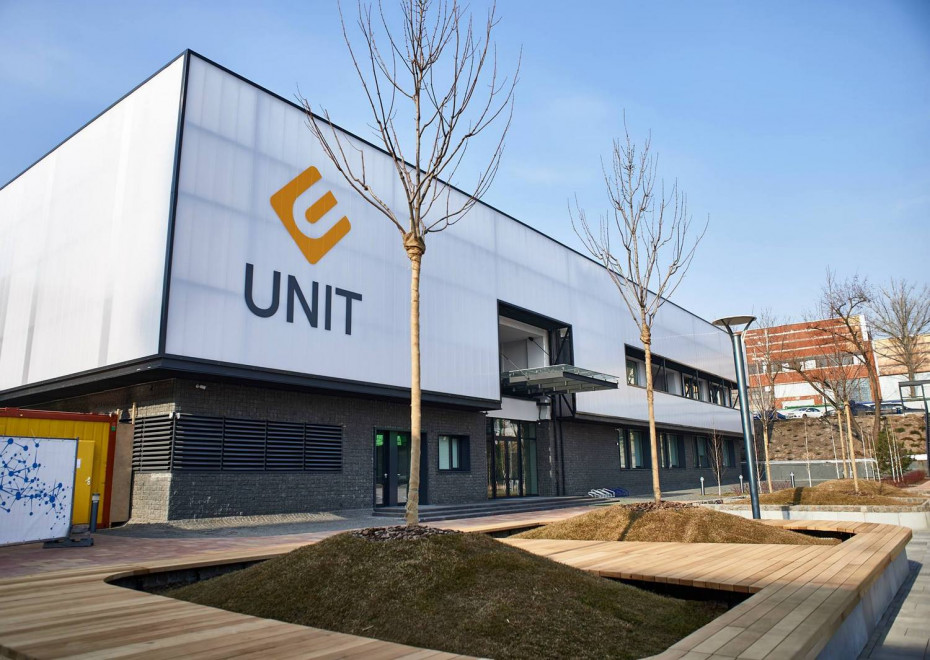The funds are allocated for nine years through up to 10 tranches with a “very competitive annual interest rate for Ukraine,” as stated by the EIB. The total cost of the project is estimated at €110 million, including around half covered by the EIB’s loan.
The project will benefit from the support of InnovFin Science and Horizon 2020, two EU programs that support research and innovation.
According to the EIB, “the project will contribute to creating one of the biggest hubs merging dedicated infrastructure with an innovation ecosystem for IT and technology companies in Central and Eastern Europe. It will put together start-ups and IT training, high technology companies and R&D centres, incubators and accelerators within a 25 ha inner-city site, boosting the development of Ukraine’s high-tech industry.”
The project involves “a private non-profit IT training facility, multifunctional flexible floor space offering a variety of office accommodation, digital fabrication laboratories (fablabs), communal and interaction spaces, and seminar and meeting room spaces for events plus other supporting facilities and infrastructure.”
Under plans, the project will be “completed by 2023” and will generate “up to 2 400 temporary jobs.” Around 15,000 jobs will be supported indirectly through UNIT.City resident companies.
An “important signal” to the global business community
Vasyl Khmelnytsky, the founder of UFuture, the holding company that controls UNIT.City, and one of Ukraine’s wealthiest businessmen, sees in the EIB credit line “an important signal for the entire market.”
“We are ready to share our experience and scale this concept of creative economy hubs across the country,” he said.
UNIT.City CFO Kirill Bondar said the loan, in addition to addressing a financial need, is also “a valuable reputational contribution.”
“It is an unprecedented case for Ukraine (…), demonstrating to the whole world: Ukrainian business can be trusted,” the EIB quoted him as saying.
Commenting on the agreement, EIB Vice-President Lilyana Pavlova noted that “Ukraine has among the largest and fastest-growing populations of IT professionals in Europe with about 200 000 people working in this field. In addition, most clients of Ukrainian IT companies are from Western Europe and the United States. Despite these remarkable achievements, Ukraine and more specifically the Kyiv urban area lack a proper ecosystem for R&D and IT companies at all stages of development, from start-ups to expanding high-tech companies.”
The EIB is now “helping Ukraine bridge this gap,” she stated, aiming to “strengthen the competitiveness of the country and its capital city and enable it to take full advantage of its skilled workforce.”
Mariya Gabriel, Commissioner for Innovation, Research, Culture, Education and Youth, said that “it is important to enhance our support for research and innovation actions in the Eastern Partnership countries,” as par of a “shared commitment to creating a more inclusive, connected and resilient European Research Area.”
“We need to bridge existing gaps and promote the involvement of researchers and technology companies from these countries in the EU research and innovation framework. The investment announced today for an integrated innovation campus in Ukraine will contribute to achieving this goal, helping to boost the country’s innovation and entrepreneurial ecosystem,” she concluded.
The EIB finances projects in Ukraine on the basis of the EU External Lending Mandate. This provides the EIB with a guarantee covered by the EU budget for projects of significant interest to the EU and its Eastern Neighbours in the areas of social and economic infrastructure, local private sector development and climate action.








.jpg)
.jpg)
